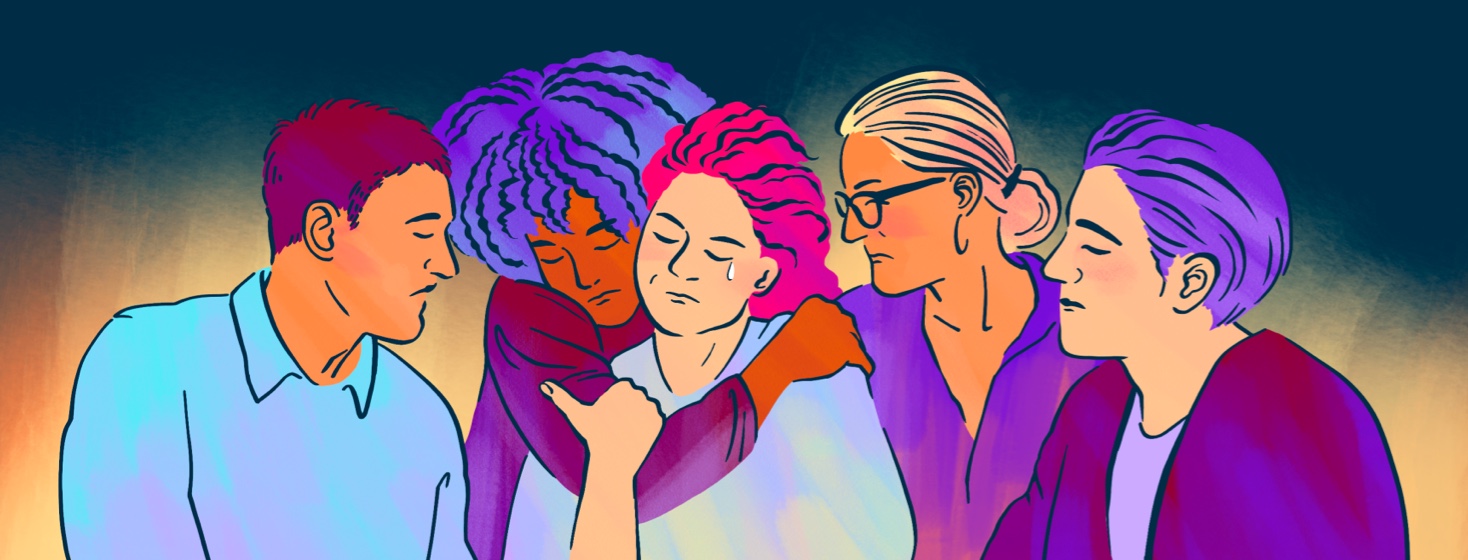Suicide Loss Survivors: Coping With Grief and Depression
Losing a loved one is always hard. When that loss is related to suicide, it can be especially devastating. The loss can create a range of emotions, including grief, anger, and depression.1,2
Coping with this loss takes time, but there are many resources available for those who need them.2-4
Emotional responses to suicide loss
A person who has lost a loved one to suicide may face many different emotions. For example, you may feel:
Depression
After losing a loved one to suicide, survivors face an increased risk of depression. The sudden nature of suicide increases the level of trauma. The combination of emotions that follow can be complicated. Suicide survivors are often at a higher risk of depression and even suicide as they try to work through these hard emotions.1,5
Grief
Any type of loss can be followed with grief. Grief can feel different each day. It may come and go as you work through the grieving process.1-3,5
Shock
You may have a period of shock, where you don't believe that your loved one's suicide has really happened. Shock may also make you feel numb.1-3,5
Anger
You may feel angry at your loved one for leaving you. You may also feel angry at yourself and others for not recognizing the severity of the problem.1-3,5
Confusion
You may not understand why your loved one took their life. It is common to want to find a specific reason, so you may have many questions.1-3,5
Guilt
You may blame yourself for not having spotted any signs or for not doing more. You might replay certain moments in your mind, looking for ways that you could have done something differently.1-3,5
Support for suicide loss survivors
Suicide survivors may feel shame in seeking help after the loss of a loved one, especially if they are feeling strong guilt. They may also face stigma when seeking help from their friends or religious community. Many people feel uncomfortable discussing suicide. This can leave the survivor feeling isolated.1-3
There are many tools that can help you cope with the grief of suicide. These include:
Taking time to mourn
Grief is different for each person. What works for 1 person may not work for you. It is important to take the time to grieve in a way that feels right for you.3
Keeping up contact with loved ones
It can be tempting to want to shut yourself away from the world. Keep in touch with loved ones who can provide support and a sympathetic ear. Know who you can call when you need to chat or even if you simply need some company. It is OK to ask for help.3
Writing down your thoughts and feelings
Sometimes it can help to write down what you are feeling. Or perhaps you want to write a letter to the loved one who has passed. Writing down your emotions and questions is a chance to get things off your chest and say what you cannot say face to face.3
Finding a support group
There are support groups designed specifically for survivors of suicide. These can be a safe place to share what you are feeling. It can be comforting to share space with others who have been through the same trauma. And it can help you know that you are not alone. Alliance of Hope can help you find a support group locally or online.3
Seeking professional help
If your feelings of grief and depression do not ease after a certain time, or if they continue to interfere with your ability to function, you may benefit from seeking professional help.1,2,5
Your doctor can refer you to a mental health specialist. These specialists can help you figure out whether you would benefit from talk therapy, medicine, or both.1,2,5
If your feelings of depression cause you to have suicidal thoughts or think about physically harming yourself, it is important to seek professional help immediately. The 988 Suicide and Crisis Lifeline is a 24-hour helpline. Call or text 988 to speak to a trained counselor.1-3
